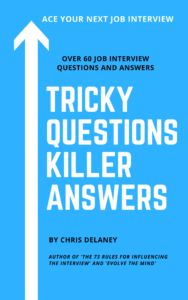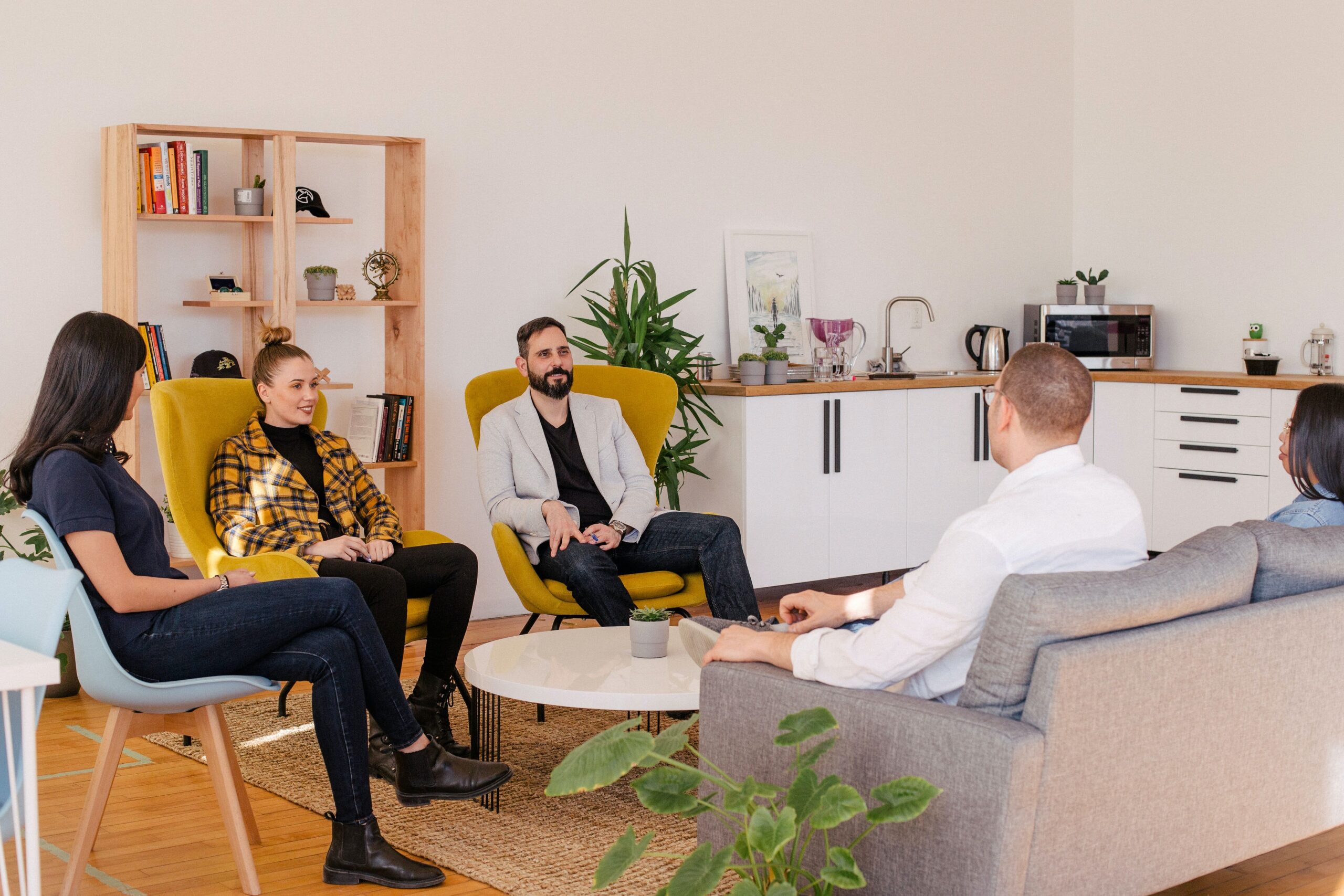Over the past several months I have been told that you would like to improve your interview techniques to be better at answering interview questions.
The problem you face is, to be really good at passing job interviews you need to be able to predict the interview questions; this is often never discussed in other employment books and articles.

Act on my advice, to pass interviews you need to practice answering tricky interview questions, it’s not just about knowing the answers to interview questions, it’s about understanding why the question was asked.
The successful secrets of employment e-book went above and beyond other employment and job hunting guides, and there is still much more to learn about answering tricky interview questions, using killer answers. This new e-book will teach you how to predict and answer tricky interview questions?
Tricky Questions, Killer Answers
- Predicting Interview Questions; by planning your interview, predicting the questions in advance you are now in a powerful position, much more powerful than the interviewer yet alone the other interviewees.
- Understanding the Interviewers Question; if you knew what answer the interviewer was expecting and the information they are trying to unpick from you, you could offer this in such a way that it will blow their mind.
- Answering Tricky Questions; once you know how powerful a book like this can be, you can use the example job interview question answers and tailor them to your needs ensuring each and every answer you gave makes the employer want you more.
As you read this you can already imagine all the different ways this e-book can help you succeed with your career and future promotions. As you already know from the brief points above this e-book is highly powerful, meaning you will increase your job opportunities and salary.
There are many other e-books and articles on interview questions, read them first once you realise it takes much more than just knowing common interviewer questions, come back and buy this e-book with interview questions, answers and many more secrets. I myself have already read many of these other e-books, some ok, some bad and I have developed their material to increase your chances of job and promotion offers.
-
Over 60 of the most common asked interview questions and the powerful answers designed to secure you job offers
-
Discover how to prepare for interview questions
-
Learn how to highlight your strengths and how to sell these to the interviewer
-
How to influence the interviewer from the opening question
The Number One reason why job hunters fail interviews – not knowing how to answer interview questions! You get a job interview, you turn up, you’re asked a question and you have no idea how to answer it. Quickly say goodbye to this job offer.
You already know, the more you learn about interview questions the better prepared you will be and the more job offers you will receive, By Now, you have probably realize how hard an interview can be, this e-book will change that belief
You already know this e-book can help you, each question comes with an explanation of what the interviewer “is looking for” and an example answer to the difficult interview questions. Knowing Interview Questions and Answers can HELP YOU WIN Job Offers.
With so many people applying for so little jobs, the interview has become A Big Barrier between you and employment, we Can HELP YOU Knock This Barrier Down.
How much would you pay to pass your first interview? Hundreds? Thousands? Well you don’t need to spend thousands of pounds; BUY TODAY and you will see the difference this e-book can make, for less than a round of drinks.
Warning; Don’t BUY NOW First let me tell you how you will find employment before others; imagine you’re the interviewer, you ask the same question to 3 interviewees, one answers with a “yes” or “no” answer, the second mumbles something their unsure about and the third one – you, answers with a confident answer using an example from their own experience, all learned from this e-book – Who would you offer the position to? You can use the same techniques to gain future promotions, this is not a one-off book, once you own this book, you can use it to further your career throughout your working life.
Click Today: Add to Cart button to Access Employment King’s – Tricky Questions and Killer Answers E-Book

Make Room – Job Offers on the way
Interviewer “Tell me about yourself?” what does the employer want to hear, what should you talk about, which piece of information is more important? You will learn all this and more. Knowing How to Answer Interview Questions will help you gain the job you deserve.
This is why you will want to buy this book, each question has been broken down to explain what information the interviewer is trying to gain from each question, in addition, I have added an answer to each interview question that you can use during your interviews.
- We have also explained how you can target your answers to your industry and job position.
This e-book will help you master answering any interview question to BEAT the competition and gain the career you have always wanted.
“After years of interviewing I have seen the difference knowing the interview questions and answers can make”
All question and answers have been research and written by qualified and experienced Careers Advisors
How can we help you gain the job you deserve?
- Pass Your Next Job Interview with Ease
- Gain new confidence by knowing how to predict interview questions for any job
- Learn the answers to over 60 of the most common asked interview questions
- Pass promotion interviews
- Gain Instant confidence at interviews and learn how to keep that motivation
SAVE OVER £££!!!
Research has shown that unprepared job hunters spend over 6 MONTHS looking for work, would you agree that is a long time?
- If you gain a promotion today, what would your pay rise be? (average £1000 a month)
- 6 months (unemployment) x £1000 (Pay Rise)
- = £6000 – WOW a massive saving and a Great Return on Your Investment
– BUY NOW!!!
If you want to PASS YOUR FIRST INTERVIEW you need to know how to answer tricky interview questions
This is a no brainer; don’t miss out while others take your job. They have brought this book, why don’t you gain the upper hand today? You are going to buy this e-book today and realise how valuable this book is.
Over 60 Answers to over 60 Difficult Interview Questions
So here is everything you get….
- A breakdown of how to Answer Interview Questions
- Learn how to predict Interview Questions
- How to match your skills to the Job Specification
- The Answers to Over 60 Tricky Interview Questions
- A preview of The Secrets of Employment E-book
More importantly….
GAIN MORE JOB OFFERS THEN EVER BEFORE
For a limited time only, Discounted Price of only £2.99

Was £9.99 Save £7.00 Now Only £2.99
Or FREE when you buy THE 73 RULES for INFLUENCING the INTERVIEW
all payments taken by PayPal – INSTANT DOWNLOAD
For a limited time only – this offer will run out!
Remember this offer won’t last, buy today before you miss out!
![]()
No questions asked, simply return the product within
60 days and we’ll refund yo ur money in full
ur money in full







